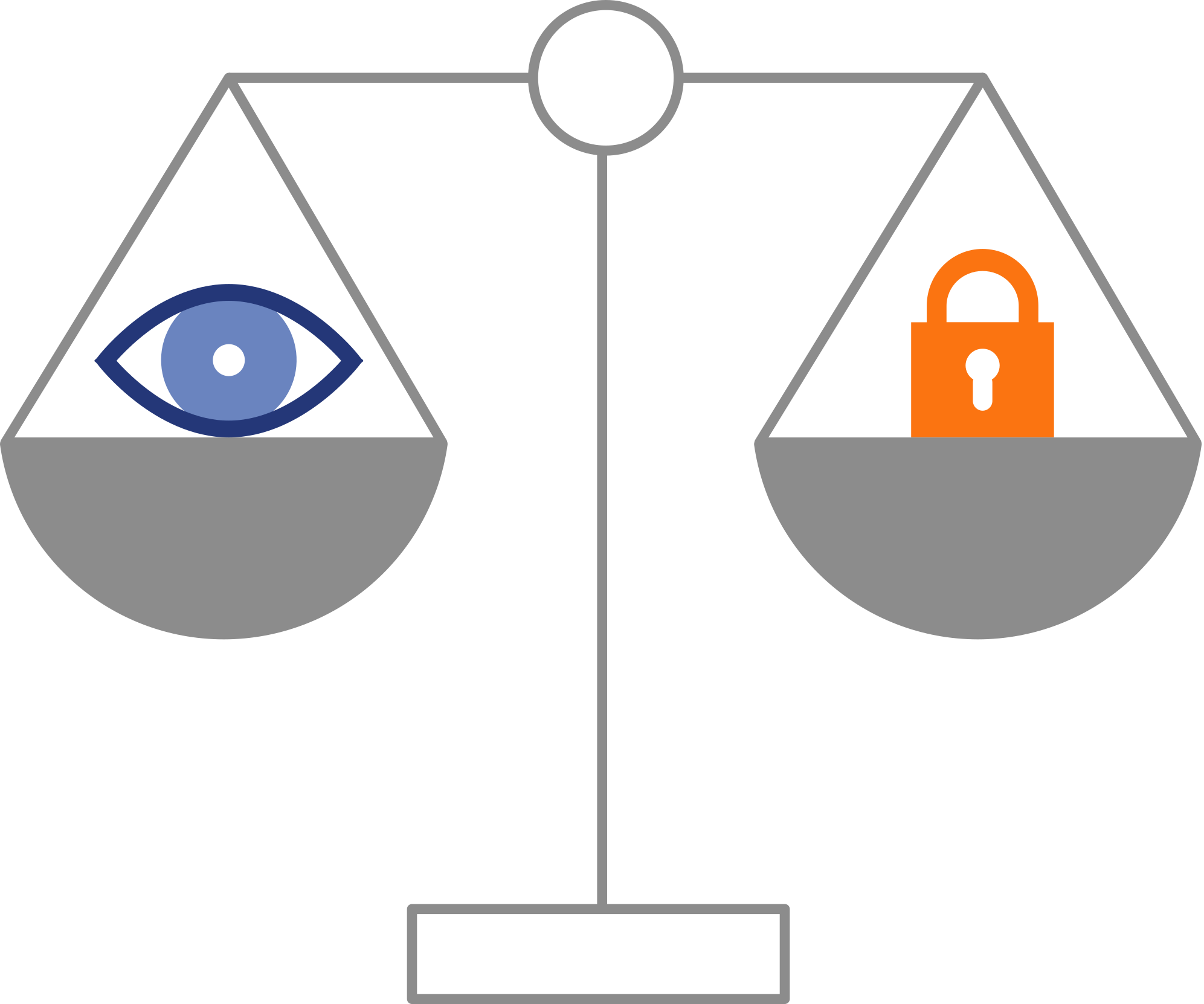With eye tracking becoming pervasive, researchers face fundamentally new challenges regarding privacy and ethics. However, these critical topics have received little attention in the eye tracking community so far. An active discussion about ethical and social implications as well as issues of data privacy is important for the further development of pervasive eye tracking technology and its acceptance in society.
This workshop aims to become the premier forum for these discussions as well as for the presentation of technical solutions towards privacy-aware and ethical eye tracking. Continuing the successful privacy panel held for the first time at ACM ETRA 2019, this interdisciplinary workshop will bring together researchers and practitioners from
- eye tracking,
- (usable) privacy,
- human-computer interaction,
- psychology
- and other eye tracking-related research fields,
- and industry.
The hands-on workshop will consist of both paper presentations and interactive sessions with work on specific practical materials that will support the participants in identifying ethically and socially relevant aspects of eye tracking and transferring them into their everyday work. To this end, we welcome submissions of 2-page research papers (for attendees already actively working on privacy and ethics for eye tracking) or 1-page position papers (for attendees interested but without prior experience in these topics).
Based on the discussions and the network created at the workshop, we plan to edit a special issue in a journal on the topic of privacy and ethics in eye tracking. We hope to form a community around these topics and to establish the first of a whole series of follow-up workshops or (Dagstuhl) seminars.
The topics of interest include but are not limited to
- Studies on Privacy-sensitive information that can be extracted from the eyes
- Empirical analyses of privacy risks for eye tracking users and bystanders
- Analyses of privacy risks from eyes in combination with other modalities and/or body-worn sensors
- Computational methods for privacy-preserving gaze data analysis
- Hardware solutions for privacy-aware and ethical eye tracking
- Ethical considerations on the usage of gaze data for research, in medical devices, in commercial products etc.
- User studies on the awareness of privacy and ethical issues arising from the usage of pervasive eye tracking
How to submit:
Your research paper for the workshop should be sent to PrEThics2020@gmail.com before March 6th, 23:59:59 AoE. Please use [PrEThics submission] in the subject and indicate conflicts with the organizers in your submission email. Your submission should follow the sigconf instructions and have up to two pages (excluding references).
Your 1-page position paper should also be sent to PrEThics2020@gmail.com until April 20th, 23:59:50 AoE and include [PrEThics submission] in the subject.
Please submit a PDF file, however, we do not require any specific style sheet.
The position paper summarizes your current or planned eye tracking studies and data collections,
your questions and concerns regarding privacy and ethics or your prior experience.
It helps us to prepare the material in a way that is most interesting for you.
Organizers:
 Inken Hagestedt, CISPA Helmholtz Center for Information Security
Inken Hagestedt, CISPA Helmholtz Center for Information Security
Inken Hagestedt is a final-year PhD student at the CISPA Helmholtz Center for Information Security, Germany. She is interested in privacy-preserving computation and sharing of biomedical data including epigenetic and eye tracking data.
 Tanja Blascheck, University of Stuttgart
Tanja Blascheck, University of Stuttgart
Tanja Blascheck is a Post Doctoral Researcher at the University of Stuttgart. Her main research areas are information visualization and visual analytics with a focus on evaluation, eye tracking, and interaction. She is interested in exploring how to effectively analyze eye tracking data with visualizations and the pervasive use of visualization on novel display technology like smartwatches. She was one of the organisers of the privacy in eye tracking panel at ACM ETRA 2019. She received her Ph.D. in Computer Science from the University of Stuttgart, in 2017.
 Michael Raschke, Blickshift GmbH
Michael Raschke, Blickshift GmbH
Michael Raschke is Co-Founder and managing director of Blickshift GmbH and an expert for a visualization-based eye movement analysis. Since 2009 he has been working on new methods and techniques for the analysis of perceptual and cognitive processes at the Institute for Visualization and Interactive Systems at the University of Stuttgart. In 2016 he founded Blickshift GmbH together with two of his former colleagues from the institute to transfer research results in eye tracking analysis into commercial products.
 Céline Gressel, University of Tuebingen
Céline Gressel, University of Tuebingen
Céline Gressel studied sociology, psychology and education in Tübingen. Simultaneously, in 2011 she started to work at the IZEW. From March 2016 she worked as a research assistant in INTEGRAM. In December 2018 she started her new project HIVE-Lab whereshe works on the Sociology of technology, Qualitative methods of empirical social research, in particular Grounded Theory, Ethics in the sciences and humanities an especially on the Integration of social, ethical an legal aspects into technology development.
 Andreas Bulling, University of Stuttgart
Andreas Bulling, University of Stuttgart
Andreas Bulling is Full Professor of Human-Computer Interaction and Cognitive Systems at the University of Stuttgart and partner of Pupil Labs GmbH. His research interests are in novel computational methods and systems to sense, model, and analyze everyday non-verbal human behavior, specifically gaze. He was one of the organisers and panelist of the privacy in eye tracking panel at ACM ETRA 2019. He received his PhD in Information Technology and Electrical Engineering from ETH Zurich and his MSc in Computer Science from the Karlsruhe Institute of Technology.
Program
coming soon
